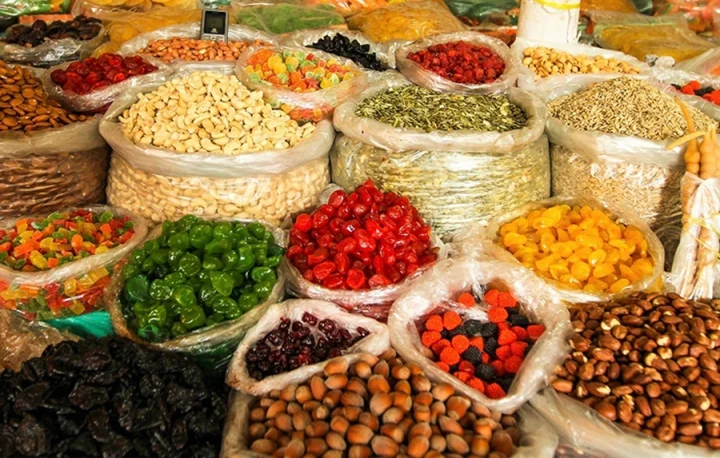BY AISHA HADEIJA, TEMI ADEGOROYE AND MOHAMMED MOMOH
Exactly 45 days after Nigeria welcomed a newly elected government, President Bola Ahmed Tinubu, on July 13, 2023, declared a national emergency on food security due to the sudden hike in food prices that has made basic items unaffordable to millions of Nigerians. This declaration is a stark reminder of the vulnerability of our food ecosystem which several development programs and private-led sector-led initiatives continue to tackle.
In collaboration with the critical actors in the food and agriculture landscape, Sahel Consulting organised the first Food Systems Changemakers’ Conference in 2022 to discuss the need for immediate and comprehensive action from all sectors to address the food crisis in Nigeria. While the government’s acknowledgement of the crisis is a step in the right direction, we must adopt a unified approach to address the underlying issues to ensure our nation’s food security.
Nigeria’s food security situation
Advertisement
Despite Nigeria gaining the status of a lower-middle income economy in 2014, Africa’s biggest economy with an estimated gross domestic product (GDP) of $441 billion and gross national income per capita of $2,085 in November 2022 has over 100 million people facing food insecurity.
How is it that a country where agriculture contributes 22% of the total GDP and employs over 80% of the population is in such as state?
Poor implementation of policies, insufficient resource allocation to the sector, and exposure to the shocking impact of climate change such as flooding, droughts, and desertification contribute to the increased prevalence of hunger and undernutrition in Nigeria. According to the World Food Program’s (WFP) Advanced Disaster Analysis and Mapping system, nearly 750,000 hectares of farmland were affected due to flooding in October 2022.
Advertisement
In addition, smallholder farmers who are responsible for 90% of food production in Nigeria lack the agency and resources to improve their productivity because they operate in an ecosystem characterised by low productivity, high post-harvest losses, low-value addition, fragmented markets, and inefficient value chain logistics. The situation is worsened by years of protracted conflict and insecurity in certain regions which is preventing many people from farming activities and earning an income.
Despite this dire situation in the country, Nigeria is still among the top five producers of food commodities such as cassava, tomato, and yam, all of which are plagued with wastage along the value chain. This brings to light some of the immediate priorities that a short or medium-term action plan for food security should focus on.
However, short- and medium-term plans have long-term implications which require careful analysis and innovative solutions. Some of the intervention plans highlighted by the federal government are questionably more long-term focused and simple statements of commitment and objective than actual plans.
Key priorities for addressing food security in Nigeria
Advertisement
The immediate release of fertilizers and grains to farmers and households as suggested by the plan might seem beneficial at face value but it has repercussions on private businesses and market systems. There is the risk of pitfalls like corruption and mismanagement that can undermine the fairness of the plan, distortion of demand and supply dynamics that could discourage private sector investment, and overdependence of smallholder farmers on subsidies.
To drive sustainable transformation, the government should consider supporting and scaling existing development efforts and private sector-led backward integration initiatives focused on the business case of providing input and training support to small and medium-scale producers and linking them to markets in a commercially viable manner.
To complement this private-sector-driven strategy, the federal government must adopt a focused approach by immediately identifying priority value chains for targeted interventions to increase production and enhance the productivity of farmers therein. We must leverage the work already done by the Medium-Term National Development Plan (2021-2025) which highlighted six priority food crops (cassava, maize, rice, soya, tomato & yam) because of their high impact on Nigeria’s food security. State governments should be mandated to ensure access to land, immediate access to capital, and high-quality inputs for new and existing food producers.
A collaborative approach for resilient food security solutions in the face of climate change
Advertisement
Another major challenge that continues to undermine the development of the sector is the misalignment of policies, mandates, and roles of ministries, departments, and agencies (MDAs). There must be considerable effort by the government to streamline activities and foster synergy between stakeholders for consolidated effort. For, example, according to the Nigerian Ministry of Water Resources, only 5.4% of farmlands in Nigeria are irrigated. Facilitating smallholder access to reliable, climate-resilient irrigation systems and early warning systems is not only the purview of the Ministry of Agriculture and Ministry of Water Resources but must also include efforts from the Ministry of Environment, Nigerian Meteorological Agency (NiMET), and National Emergency Management Agency (NEMA) to synchronise information for production decision making across the country all year round.
The federal government must leverage existing multi-agency committees to build a coordinated national response mechanism for early warning systems. In collaboration with development partners, the government must lead the charge to build the capacity of these agencies and provide the much-needed infrastructure for a robust climate response.
Advertisement
An urgent need to rethink agricultural financing
It is commendable that the president’s 12-point plan recognises the need to enhance financing for agriculture actors. Both farmers and financiers have a desire for returns on investment, therefore agricultural financing must be remodelled to incentivise these actors to take on healthy investment risks.
Advertisement
To achieve this, there is a need to proactively attract private-sector investment whilst instituting public-sector de-risking tools. Financing must be structured in a way that appreciates the peculiarities of farming as a profession and does not treat it as any retail or corporate business. The provision of long-term loans and insurance to farmers can serve as a substitute for the provision of concessionary funds or capital to the agricultural sector.
The federal government needs to organise an urgent convening of stakeholders such as patient capital investors, critical private-sector fund managers and development financial institutions (DFIs) to harness solutions and experiences to create a roadmap for financing the Nigerian agricultural sector. It is only after this that we can hold ourselves accountable to see that farmers and indigenous agribusinesses are empowered with the right resources to improve production and productivity.
Advertisement
This roadmap can also highlight sustainable pathways to channel agricultural funding through private sector fund managers to social agricultural enterprises, strong and credible producer organisations, and cooperative systems across priority value chains. This approach will go a long way in limiting bottlenecks that divert funds and also serves as an opportunity to revive certain public parastatals such as the Bank of Agriculture (BoA) while streamlining the role of the Central Bank of Nigeria to its regulatory mandate.
Tackling insecurity in farming communities
There is a common perception that the insecurity affecting the agricultural sector is primarily caused by the infamous farmer-herder clashes in different parts of the country. However, this is not entirely true, as observed by the Advancing Local Dairy Development in Nigeria (ALDDN) program implemented by Sahel Consulting. Smallholder dairy producers are also affected by insecurity challenges in the form of kidnapping and cattle rustling.
Completely eradicating insecurity challenges in Nigeria requires a long-term and drastic approach, but a short-term priority for the government should be to reduce the losses associated with insecurity in rural farming communities across Nigeria by 50% before the end of 2024. This can be achieved by convening an Agricultural Sector Security Summit to devise quick ways of collaborating with all actors across the public and private sector spaces and from all levels of government, including farmer organisations, traditional institutions, and the international community to strengthen the existing security systems – such as the agro-rangers – and to implement new security systems. This summit can give birth to the development and implementation of an agricultural sector security programme.
Prioritising nutrition improvement
A critical piece the plan sidelines is nutrition! The race for food security has always been centred around increased production, but not increased availability, affordability and accessibility of nutritious foods. The incidence of malnutrition in Nigeria continues to rise affecting over 29.4 million people and is associated with 53% of infant mortality and maternal deaths. In addition, the nation loses approximately $1.5 billion in GDP annually owing to micronutrient deficiencies
“It is impossible to achieve the SDGs without profound progress in tackling undernutrition. It is widely recognized that good nutrition is the most important investment in human capital development.” -The National Development Plan (2021-2025)
There is no food security without adequate nutrition. There is a need to promote the production of diverse safe and nutritious food commodities by promoting the integration of nutrient-rich and bio-fortified food varieties into the food system, supporting producers of alternative, underutilized, and nutritious food commodities like Ukwa (Breadfruit) and Acha (Fonio), and prioritising quality and safe livestock production, especially for cattle (dairy and meat) and poultry.
Another key short-term strategy is the review of the Home-Grown School Feeding Programme to include a transparent selection and inclusion criteria of food groups that is backed by expert data and inclusion of indigenous food processors who source commodities from local farmers. This has a multiplier effect on the local economy across the whole value chain.
The significant contribution of women and young people in the food and agriculture sector cannot be over-emphasized. The increasing rate of rural-urban migration has concentrated the population of youth who search for ‘greener pastures’ in the more developed town. Women on the other hand are responsible for over 50% of the labour force in the Nigerian food system and are at the frontlines of climate change. Immediate interventions must be put in place to enhance their access to modern labour-saving technologies alongside extension services for enhanced access to information. When women and young people in the agriculture sector are empowered, they can feed the whole country.
In addition, the existence of accurate, reliable, and routine data is key for the success of any development initiative, more so for one that targets millions of Nigerians with urgent lifesaving interventions. Nigeria has a history of ghost beneficiaries and shady transactions in the past when it comes to public sector programs. The Federal Ministry of Agriculture and Rural Development (FMARD), Global Alliance for Improved Nutrition (GAIN) and other development agencies and private-sector partners should accelerate the completion of the food systems dashboard to provide verifiable information on food system data. This will aid decision-making, facilitate the smooth implementation of activities targeted at farmers and vulnerable populations and enhance the alignment of donor-funded activities with government priorities.
Nigeria is making considerable efforts in transforming its food and nutrition ecosystem, with new innovations, strategic partnerships and investments from the private sector. But the challenges still persist on a large scale that disproportionally drowns out the progress being made.
The presidential declaration is indeed a wake-up call for the country. By prioritising agricultural investments, focusing on improving the productivity of smallholder farmers, addressing economic disparities, and fostering collaboration among stakeholders, we pave the way for a more resilient and sustainable food ecosystem. No doubt social safety nets and government support is needed in the interim to support millions of food-insecure Nigerians but the short-term focus must be to leverage low-hanging fruits while strategically taking calculated attempts at addressing the root cause.
Views expressed by contributors are strictly personal and not of TheCable.






